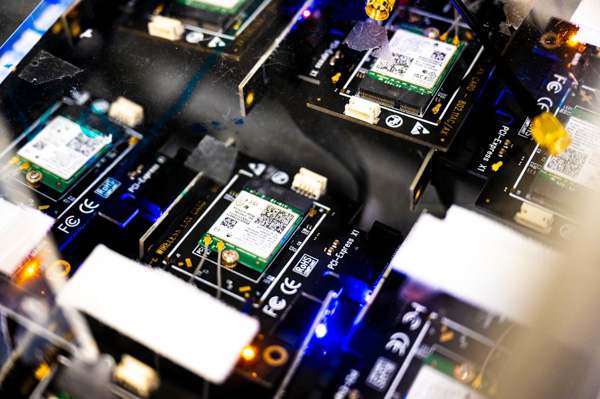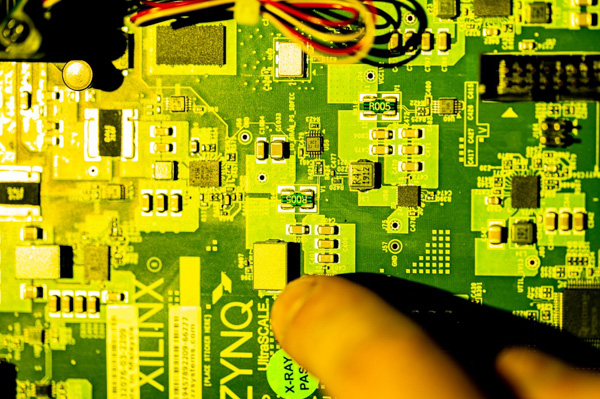Research Uncovers Wi-Fi Security Vulnerability

ECE Assistant Professor Francesco Restuccia is one of several authors of new research that has uncovered a significant security vulnerability in wireless technology found in nearly every Wi-Fi system. The research was selected for a Best Paper Award at IEEE INFOCOM 2025 and the findings will be presented in May at the IEEE International Conference on Computer Communications (INFOCOM).
This article originally appeared on Northeastern Global News. It was published by Cesareo Contreras. Main photo: Northeastern electrical and computer engineering professor Francesco Restuccia works in his lab in EXP on the Boston campus. Photo by Alyssa Stone/Northeastern University
How secure is your Wi-Fi network? New Northeastern research uncovers major vulnerability in wireless networking technology
We often take for granted just how ubiquitous Wi-Fi has become over the past two decades, explains Northeastern University electrical and computer engineering professor Francesco Restuccia, who is also a member of the Institute for the Wireless Internet of Things.
Wi-Fi provides wireless connectivity to more than 20 billion devices around the globe, including smartphones, laptops, game consoles, and smart TVs. And for most people, Wi-Fi works so smoothly it almost feels magical.
“It’s one of the most pervasive technologies ever invented by mankind,” Restuccia says. “We seamlessly utilize Wi-Fi every day without even knowing we are. It’s so pervasive that it has basically disappeared into our lives.”
Restuccia is one of several authors of new research that will be presented in May at the IEEE International Conference on Computer Communications (INFOCOM). The research uncovers a significant vulnerability in a wireless technology found in nearly every Wi-Fi system.
And it could have devastating effects for Internet users around the world.
Northeastern electrical and computer engineering professor Francesco Restuccia works in his lab in EXP on the Boston campus. Photo by Alyssa Stone/Northeastern University
The researchers, including doctor Francesca Meneghello, who visited Northeastern in 2023 on a Fulbright Shuman scholarship, have found a security flaw concerning MU-MIMO (multi-user, multiple input, multiple output), which is a key component of modern Wi-Fi networks.
In a nutshell, MU-MIMO allows multiple users to share network’s time and spectrum resources improving the communication efficiency and the quality of service delivered to the users. It was introduced as part of Wi-Fi 5 standard in 2013 and has been employed ever since.
Video Title: Demonstration of the BREAK attack to destroy IEEE 802.11 Wi-Fi MU-MIMO transmissions
Read full story at Northeastern Global News


